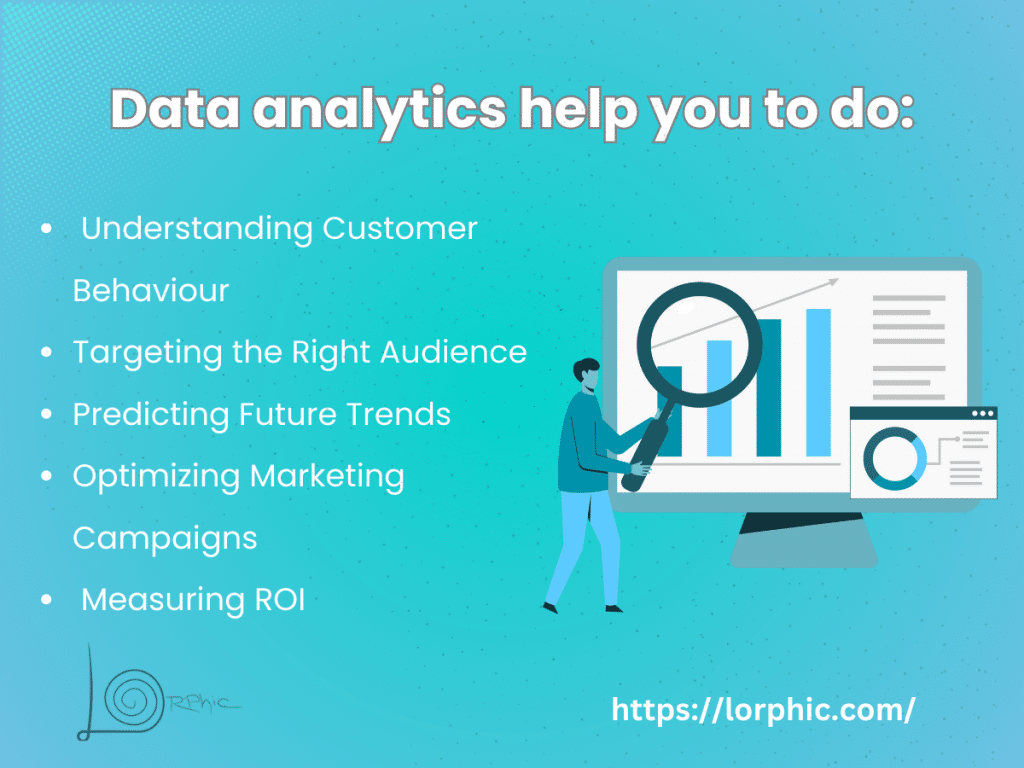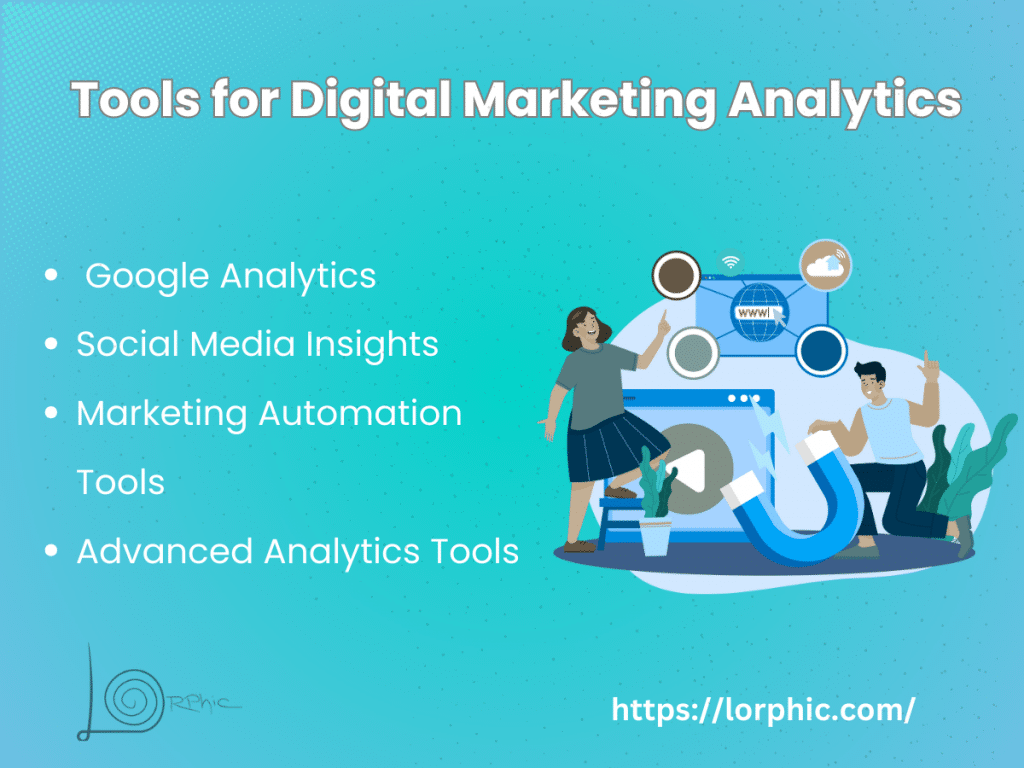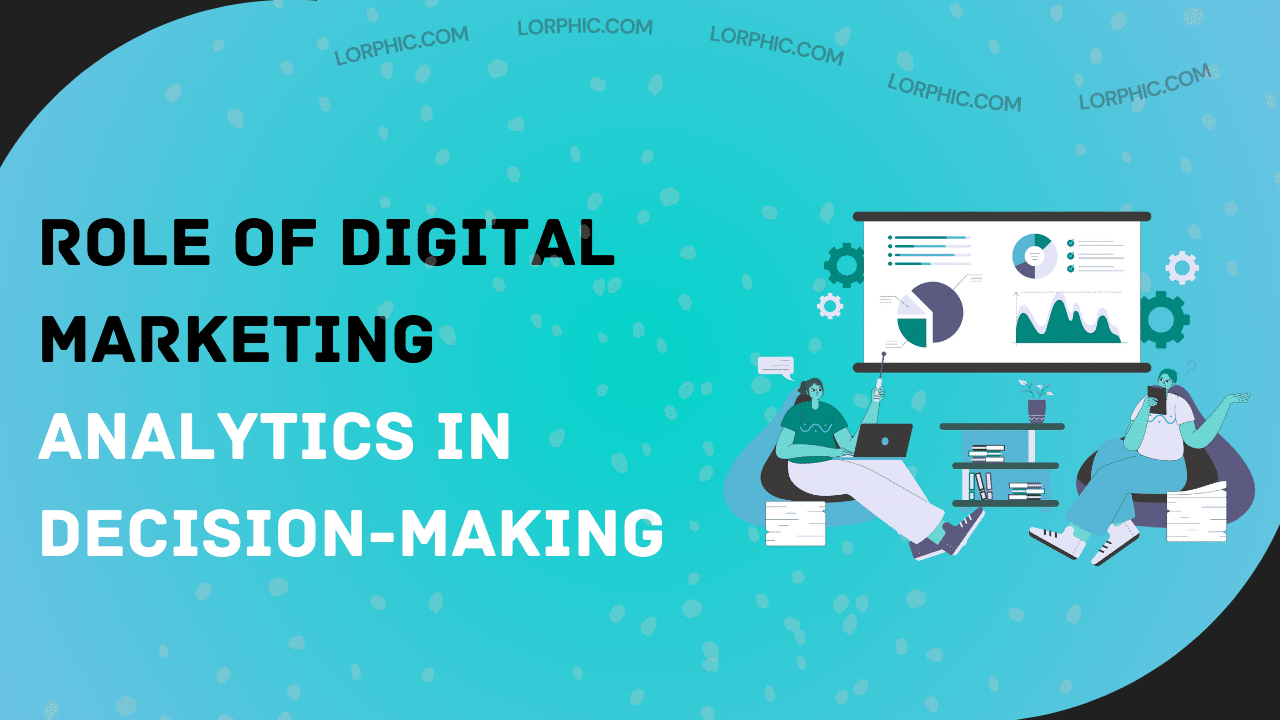In the modern digital world, the role of digital marketing analytics helps companies make better decisions by pulling actionable insights from data. With the monitoring of website traffic, conversions, and customer behavior on multiple platforms, businesses refine strategy, drive ROI, and increase engagement. From personalized messages to predictive modeling, data-driven techniques turn raw measurements into competitive edge—showing that analytics is not merely a numbers game, but a force behind winning marketing strategies.
Why Does Data Analytics Matters?
A recent study has revealed that 94% of companies consider data and analytics important aspects for business growth and transformation to the digital sphere; however, only 30% of them have a developed data strategy. This gap in the market is a chance for those who are willing to adopt the discipline of data driven marketing!
The Growing Importance of Digital Marketing Analytics
With today’s ultra-competitive virtual landscape, companies simply can’t risk relying on guesswork anymore. Data-driven marketing is now the cornerstone of effective strategies, as 62% of marketers use data analytics (HubSpot) today to inform their choices. It shows how digital marketing analytics has gone from being an indulgence to an integral part—allowing brands to refine campaigns, improve customer experiences, and improve ROI.

1. Understanding Customer Behaviour
One of the primary functions of digital marketing analytics is to provide a deeper understanding of customer behaviour. By tracking how customers engage with various digital touchpoints, businesses can gain insights into what drives their actions. For example:
- Bounce Rate: Identifies which pages may not resonate with visitors.
- Session Duration: Shows how long users engage with content.
- Customer Journey Mapping: Tracks the sequence of customer interactions across channels.
2. Targeting the Right Audience
Accurate audience targeting is a cornerstone of effective marketing. The role of digital marketing analytics here is to help identify the specific demographics, interests, and behaviours of users most likely to convert. Analytics tools can help segment audiences by:
- Age, Gender, Location: Basic demographic data that informs targeted campaigns.
- Interests and Behavior: Insights on what users engage with most.
- Purchase History: Helps in creating personalized offers and recommendations.
3. Predicting Future Trends
Predictive analytics, an advanced aspect of digital marketing, enables businesses to anticipate future trends based on historical data. The role of digital marketing analytics is invaluable in trend forecasting, as it helps businesses stay ahead of shifts in consumer preferences and industry changes. With predictive models, companies can:
- Identify Seasonal Trends: Recognize patterns that reoccur during specific periods.
- Anticipate Product Demand: Forecast which products may see increased demand.
- Plan Resource Allocation: Optimize inventory, staffing, and budget allocation based on expected demand.
4. Optimizing Marketing Campaigns
The role of digital marketing in campaign optimization is significant. Analytics enables marketers to assess campaign performance across various channels and adjust strategies in real-time. Key metrics for optimizing campaigns include:
| Metric | Importance |
| Click-Through Rate (CTR) | Measures the effectiveness of ad content. |
| Conversion Rate | Indicates the success of campaigns in driving desired actions. |
| Cost Per Acquisition (CPA) | Helps manage and optimize marketing budgets. |
5. Measuring Return on Investment (ROI)
Understanding the role of digital marketing in ROI measurement is crucial. Data analytics provides detailed insights into which channels and tactics yield the highest returns, allowing businesses to make informed budgetary decisions. For instance:
- Attribution Models: Help assign value to each customer touchpoint, giving a clear picture of which channels drive the most conversions.
- Revenue per Campaign: Assesses the financial success of individual campaigns.
- Cost-Benefit Analysis: Determines if the revenue generated justifies the marketing spend.
How Leading Brands Use Analytics?
Amazon derives 35% of its revenue from AI-based recommendations, adjusting 2.5 million prices each day based on real-time demand signals. Netflix uses viewing behavior to guide its $17B content investment, reducing churn by 30% through hyper-personalized recommendations.
Walmart combines online/offline data to generate 40% more omnichannel sales, while Tesla generates 90% in-car engagement through in-car marketing. These leaders prove that leading-edge analytics:
- Power hyper-personalization (5-8x ROI)
- Facilitate real-time optimization (30% performance improvement)
- Construct predictive advantages (40% more conversions)
The divergence between analytics and non-analytics marketers is growing exponentially, with analytics adoption becoming essential for survival in a competitive environment.
Types of Digital Marketing Analytics
Knowing the function of digital marketing in analytics includes different kinds, each with a special emphasis to optimize strategy. This is a quick rundown:
1. Descriptive Analytics
Predictive analytics relies on past data to predict what will happen in the future, tackling “What might occur?” This aids in allowing companies to predict customer behaviors, streamlining inventory, and allocating resources better.
2. Predictive Analytics
Predictive analytics applies past facts to predict upcoming trends, answering “What can occur?” It assists companies in forecasting customer actions, aligning stock, and allocating resources more wisely.
3. Prescriptive Analytics
Prescriptive analytics offers solution recommendations, answering “What needs to be done?” By considering different options, it advises marketers on how to best maximize campaigns and have improved ROI.
Tools for Digital Marketing Analytics
Each tool below enhances the role of digital marketing by providing specific insights and capabilities:

1. Google Analytics
Google Analytics offers insights into website performance and user behaviour, tracking metrics like traffic sources, session duration, and bounce rate to help understand visitor interactions.
2. Social Media Insights
Platforms like Facebook, Instagram, and Twitter provide in-depth analytics on engagement, audience demographics, and content performance, essential for social media strategy optimization.
3. Marketing Automation Tools
Tools like HubSpot and Marketo streamline email marketing, lead tracking, and campaign management, allowing marketers to automate and measure effectiveness across channels.
4. Advanced Analytics Tools
Data Studio, Power BI, and Tableau provide robust visual analytics, enabling marketers to create data dashboards, visualize trends, and generate insights for more informed decision-making.
These tools underscore the role of digital marketing in gathering actionable data, improving campaign performance, and enhancing audience engagement.
Challenges in Digital Marketing Analytics
Addressing challenges is crucial to maximizing the role of digital marketing analytics in strategy and decision-making. Key challenges include:
1. Data Privacy and Compliance Issues
Adhering to regulations like GDPR and CCPA requires careful handling of user data, adding complexity to data collection and analytics practices.
2. Managing Data Quality and Accuracy
Ensuring accurate, high-quality data is essential for reliable insights. Inconsistent or incomplete data can lead to misleading interpretations and ineffective strategies.
3. Integrating Data Across Platforms and Channels
Combining data from multiple sources (e.g., social media, websites, CRM systems) can be challenging but is vital for a comprehensive view of marketing performance.
These challenges underscore the role of digital marketing analytics in creating cohesive, ethical, and effective strategies amidst evolving digital landscapes.
Conclusion
Digital marketing analytics is more than just tracking numbers; it’s a strategic tool that helps businesses thrive in a data-driven world. By understanding the role of digital marketing analytics, companies can better connect with their audiences, predict trends, and refine campaigns for improved results. From analyzing customer behaviour to measuring ROI, digital marketing analytics provides actionable insights that allow businesses to make informed decisions, maximize their investments, and achieve sustainable growth.
Though challenges like data privacy and integration remain, embracing these analytics practices can empower businesses to stay competitive and responsive in a rapidly evolving digital landscape.
At Lorphic, we use digital marketing analytics to create smart, data-driven strategies that help businesses grow, stay competitive, and connect better with their audiences.”
FAQ’S
What is the role of digital marketing analytics in decision-making?
Digital marketing analytics helps businesses make data-driven decisions by providing insights into customer behaviour, campaign effectiveness, and return on investment.
Why is understanding customer behaviour important in digital marketing?
Analyzing customer behaviour allows businesses to tailor content and strategies to meet audience needs, improving engagement and conversions.
What are common tools for digital marketing analytics?
Popular tools include Google Analytics for web insights, social media analytics on platforms like Facebook and Instagram, and advanced tools like Power BI and Tableau for in-depth analysis.




